‘Without music, life would be a blank to me’, said Jane Austen.
And we could not agree more.
Music can soothe us, energise us, transport us and, above all, inspire us. That is why we are curating this Sheroic Playlist. A list that not only brings you songs, but also introduces you to some extremely inspiring female musicians. Women whose music or lives are sheroic and need to be celebrated.
This first round brings you some sheroic sounds from the Middle East and North Africa.
You can listen to it on Spotify or on Youtube.
Enjoy!
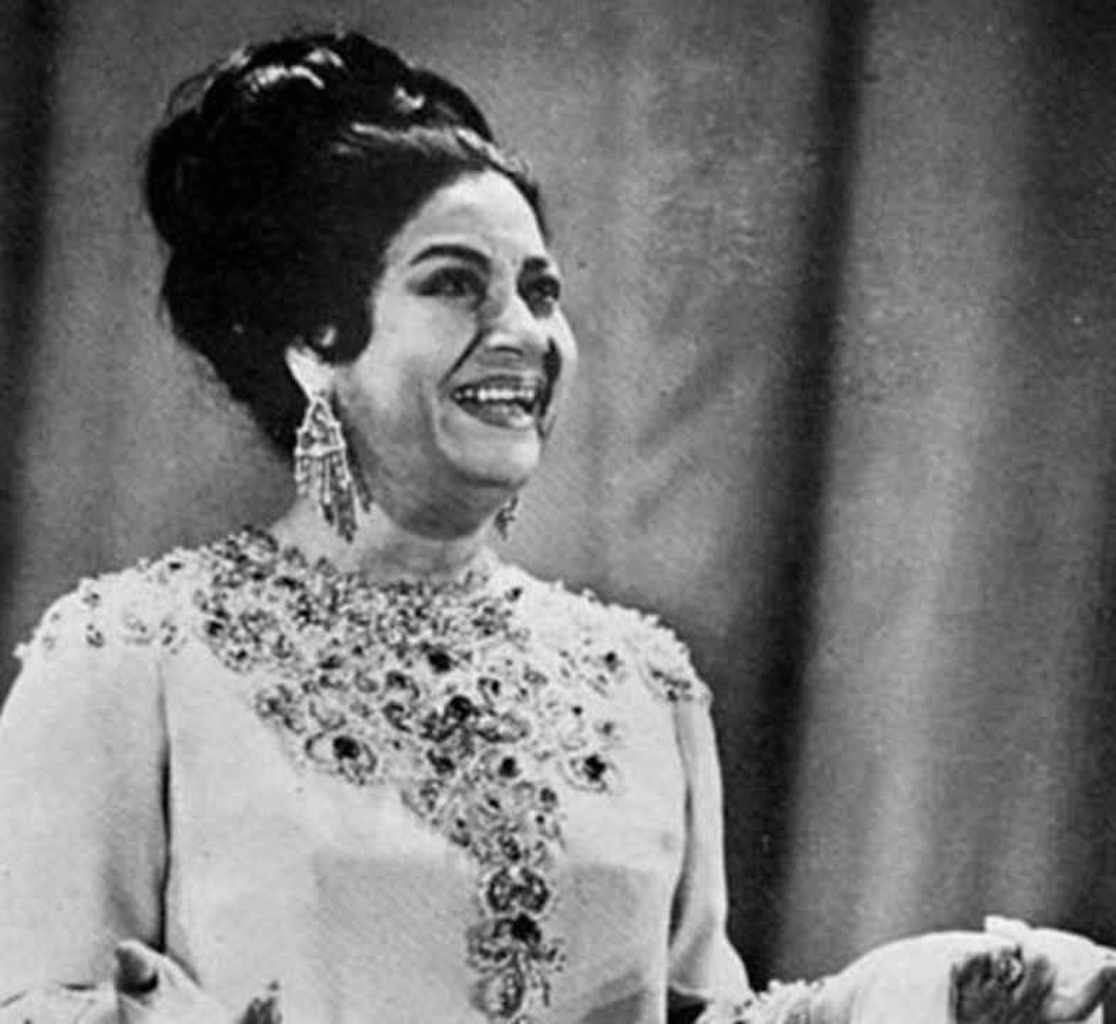 |
Um Kulthoum (Egypt)The most iconic female singer in the Arab world to this day, Um Kulthoum learnt to sing by listening to her father teach her older brother. At the age of 12, she started singing at her family ensemble, but had to do it dressed as a boy for her father not to face disapprobation due to having a girl on stage. She is famous for her improvisations which could last for half an hour. She also was a key diplomatic figure during Nasser’s time, whose speeches were often broadcasted immediately after her monthly radio concerts. Extremely loved by the Egyptians, who consider her ‘the fourth pyramid’, her funeral procession became a national event, with around 4 million people lining the streets as her cortège passed. |
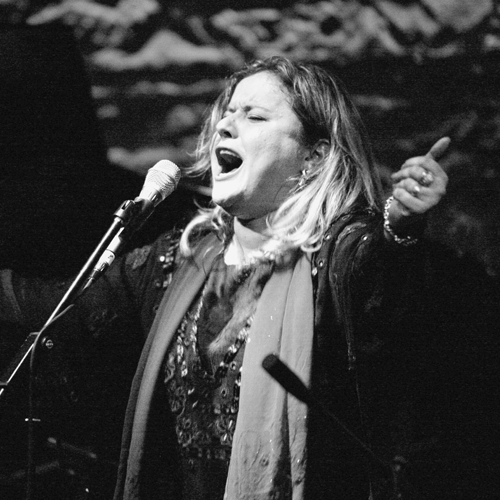 |
Reem Kelani (Palestine)Reem Kelani is a Palestinian singer, musicologist and broadcaster who was born in England, brought up in Kuwait and settled in London. It is often said that her music has the mission to educate the world – mainly the West – about Arabic history and culture. ‘There is a message that Palestinians don’t exist, so my narrative is that I exist – my narrative is my existence, both personally and collectively (…) As a human being, as a woman, as a Palestinian.” |
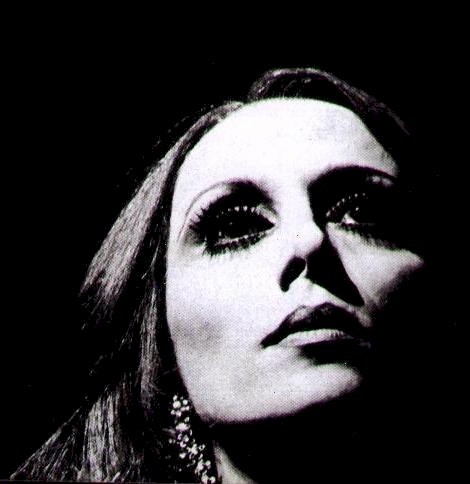 |
Fayrouz (Lebanon)One of the most widely admired and deeply respected living singers in the Arab world. ‘From chorus girl at the Lebanese radio station in the late 1940s, to critical and popular acclaim from the 1950’s to today, Fayrouz is acknowledged not only for her musical talent and contribution, but also as a cultural and political icon. Her songs testify to the Rahbani brothers and her son Ziad Rahbani’s musical genius, as well as to Fayrouz’s broad musical background’. Her repertoire comprises around 85 Fairuz CDs, vinyls and cassettes as well as multiple awards. For decades, radio stations in the Arab world have started their morning broadcast with a Fayrouz song. The saying goes that you listen to Fayrouz with your coffee in the morning and Um Kulthoum in the evening. |
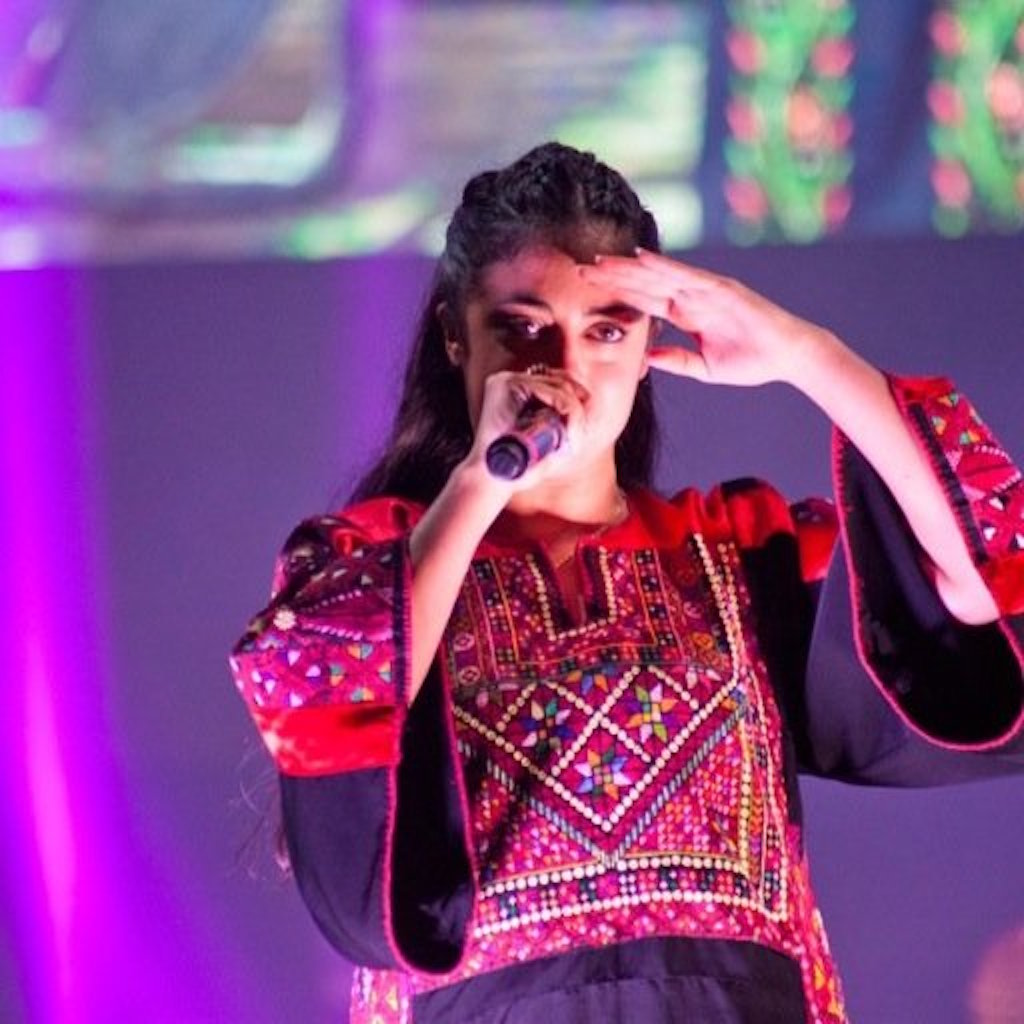 |
Shadia Mansour (Palestine)Mansour, aka the ‘First Lady of Arabic Hip Hop’, was born in London in 1985. Her parents are Christian Palestinians originally from Haifa and Nazareth. She grew up in the UK and spent summers visiting relatives in Palestine. She began singing at Palestinian protest rallies as a child and became known in London’s Palestinian community for performing classical Arab songs of protest at an early age. She went on to study performing arts before beginning her career as an MC and has gained recognition in the Middle East, Europe and the US for her own songs and collaborations with other artists. She performs wearing a traditional Palestinian thawb and considers herself to be part of a “musical intifada” against the occupation of Palestine, conservatism and oppression of women. |
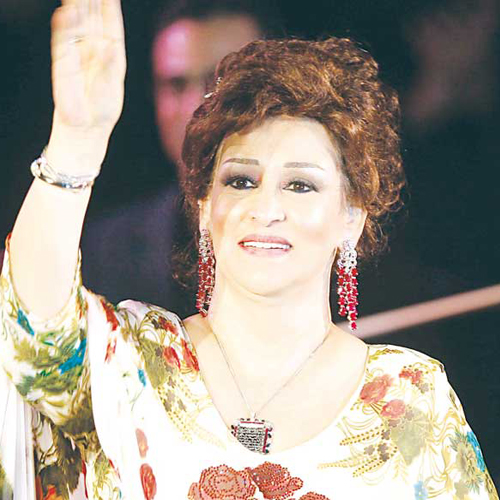 |
Warda el Jazaereya (Algeria)Warda Fatouki was born in 1939 in Puteaux, France, to a Lebanese mother and an Algerian father. Though she was only fourteen in 1954, when the Algerian War of Independence began, she would sing patriotic songs. A few months after Algeria got its independence (1962), she arrived in her country for the first time. She got married there and her husband asked her to give up singing for audiences to look after their family- which she did for ten years. In 1972, as festivities were planned to commemorate the tenth anniversary of the Algerian Independence, President Hûari Bûmedien asked Warda to sing on this special occasion. She agreed, and her marriage broke down as a result. In December of the same year she left for Cairo where she became very rapidly one of the most famous Arab singers of her time. |
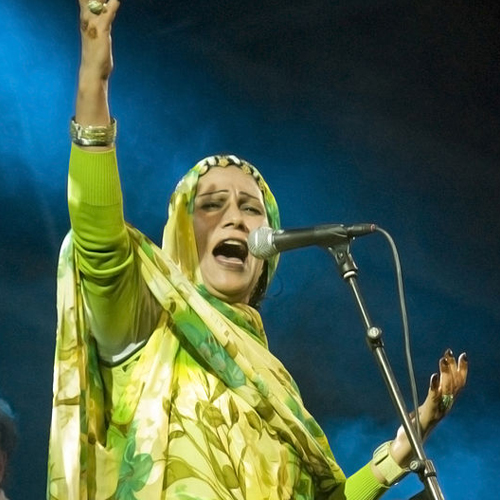 |
Mariem Hassan (Western Sahara)Sahrawi singer, lyricist, nurse and activist from the Western Sahara. In 1975, following the Green March and the Madrid Accord which ceded the territory to Morocco and Mauritania, she had to escape with her family to the Sharawi refugee camps in Tindouf, Algeria. In early 1976, Hassan joined the musical group Hafed and travelled with the band to many countries, playing at cultural events and headlining a number of world music festivals. In 2005, her first solo album was released Deseos (Wishes). Two other albums followed, Shouka (The Thorn) 2010 and El Aaiun Egdat (El Aaiun on fire) in 2012. Hassan was the subject of a 2007 documentary film ‘Mariem Hassan, the voice of the Sahara’. In 2015 she died of a cancer that she had been fighting for almost 10 years. She asked to be taken back to her tent in Smara where she died. |
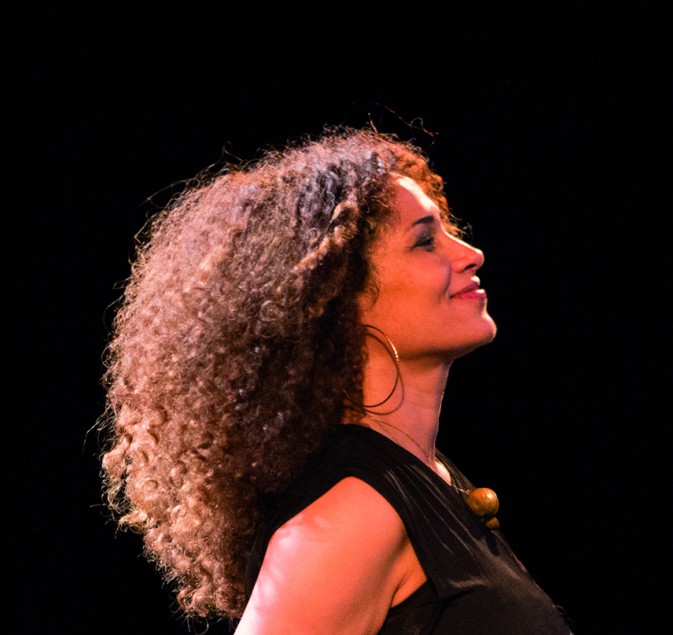 |
Ghalia Ben Ali (Tunisia)Tunisian singer, songwriter, writer, actress and graphic designer. Born in Brussels and raised in Zarzis, Tunisia, Benali embarked on her music career in the early 90s, during the rise of world music. Benali’s southern Tunisian upbringing and fascination with Middle Eastern and Arab legendary artists is palpable in her music style, which has been noted for its attribution to multiple genres and defining contemporary Arabic music. Her singing must be in Arabic, she can’t see herself singing in any other language. The magic of her lyrics are translated through her presence on stage and powerful performances. In 2015, Ghalia sang for “Silence is not Acceptance” a UN campaign to end violence against women and support female survivors of violence in Arab States. You can read the lyrics and listen to it here. |
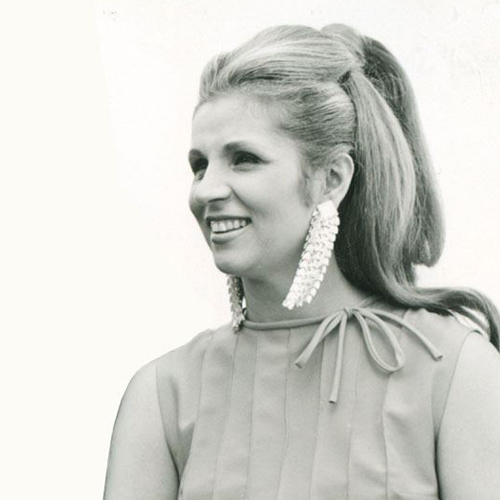 |
Sabah (Lebanon)Sabah was a Lebanese singer and actress considered a “Diva of Music” in the Arab world. She released her first song in 1940 at age 15 and soon caught the eye of Egyptian film producer Asia Dagher, who immediately signed her for three films. The first of these, El-Qalb Louh Wahid (The Heart Has Its Reasons), made her a star and she became known by her character’s name—Sabah—which is Arabic for morning. Her youthfulness and the joy she brought in her performances made her a living symbol of the ‘belle époque’ and of the ‘joie de vivre’ in the Levant and the Arab world. Her funeral took on a festive air as the crowds celebrated Sabah’s taboo-breaking six-decade-long career singing her songs and dancing folkloric dance ‘dabke’. |
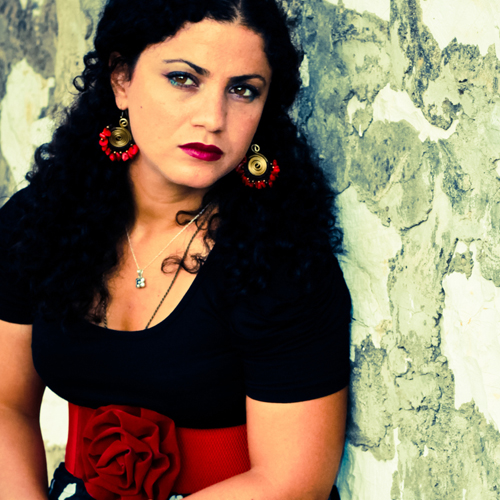 |
Emel Mathlouthi (Tunisia)Tunisian singer-songwriter best known for her protest songs “Ya Tounes Ya Meskina” (“Poor Tunisia”) and “Kelmti Horra” (“My Word is Free”), which became anthems for the Tunisian revolution. The outstanding success of these songs led her to perform it at the award ceremony of the 2015 Nobel Peace Prize in Oslo, which was awarded to the Tunisian National Dialogue Quartet.’ Mathlouthi grew up under Ben Ali’s dictatorship, so she did what she could to do rebel and formed a goth-metal band. But it was on discovering Arabic protest musicians Sheikh Imam and Marcel Khalife, as well as 60s American folk singer Joan Baez, that Mathlouthi realised she could approach political music in a more subversive way.” In her second album Ensen (Human, 2017), she pairs electronica with traditional Tunisian instruments. |
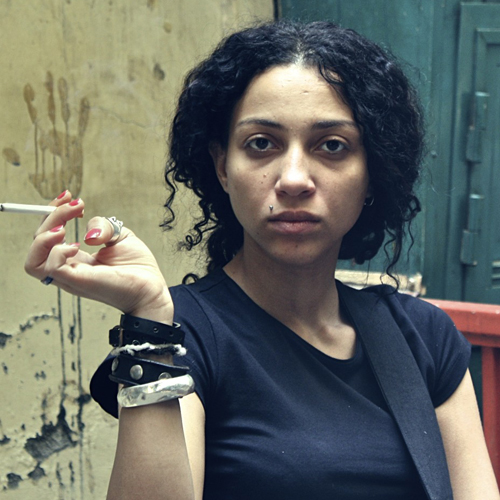 |
Maryam Saleh (Egypt)A major creative force and a powerful voice for her generation, Egyptian singer and songwriter Maryam Saleh composes and performs Arabic music that is personal, political and philosophical. Her style is influenced by Trip Hop and Psych Rock. In the past year few years, Maryam has played widely across Egypt, the Arab World, and Europe. After releasing her debut album Mesh Baghanny (2012), she joined forces with Lebanese electro-pop pioneer Zeid Hamdan in releasing Halawella (2015). In 2017, Maryam Saleh, Maurice Louca and Tamer Abu Ghazaleh, names that have turned heads in alternative Arabic music united to give birth to ‘Lekhfa’, an off kilter sound where layers of grit and beauty intertwine in and around the dystopian poems of their contemporary Mido Zoheir, one of the most talented Egyptian poets of their generation.’ |
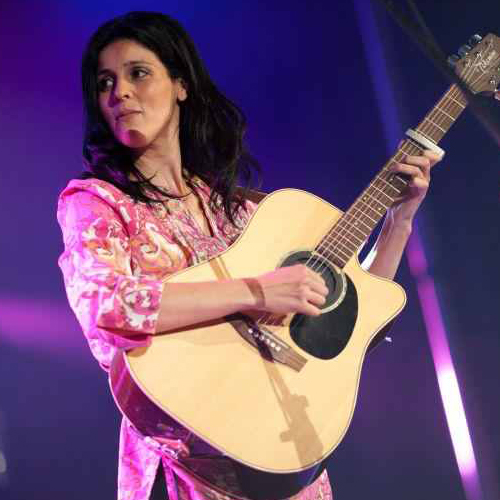 |
Souad Massi (Algeria)Souad Massi is an Algerian Berber singer, songwriter and guitarist. Massi grew up in the working-class Bab El Oued neighbourhood in Algiers. She took up singing and playing the guitar at an early age and immersed herself in American country and roots music that would later strongly influence her songwriting. In the early 1990s, Massi joined the Algerian political rock band Atakor. She recorded and performed with the group for seven years. The band, however, with its political lyrics and growing popularity, became a target. She disguised herself by cutting her hair and dressing in male clothing, but she nevertheless received a series of anonymous death threats. In 1999, she left the band and moved to Paris where she started her solo career releasing her debut album Raoui (“Storyteller”) in June 2001. Five very successful albums followed her first album. |
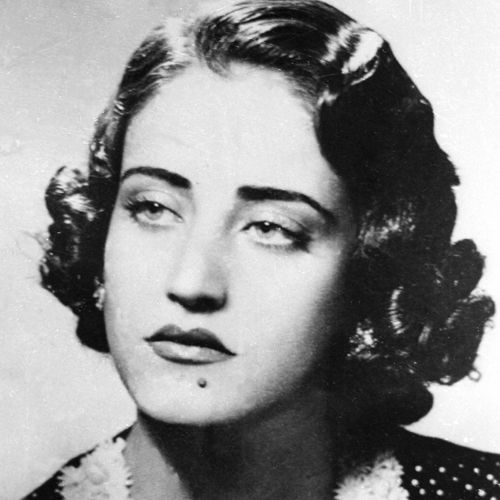 |
Asmahan (Syria-Egypt)Highly sexualised, provocative, and divisive, she was a ‘glorious voice, a wanton woman, a daredevil, the mistress of many, and a self-destructive force’, says scholar Sherifa Zuhur. Throughout her life, Asmahan was shadowed by lurid rumours. She married and divorced her cousin, Prince Hassan Al Atrash, twice. She rejected the life of a princess in her native Syria, and became a diva in Egypt where her Syrian status was meaningless. Her premature death acted to compound her already controversial reputation, with the conspiracy theories surrounding it multiplying by the day. Over 70 years after her death, her vocal range, her formidable character, her glamour, her alleged espionage, and her onscreen persona resonate and continue to inspire many in the Middle East to this day. |
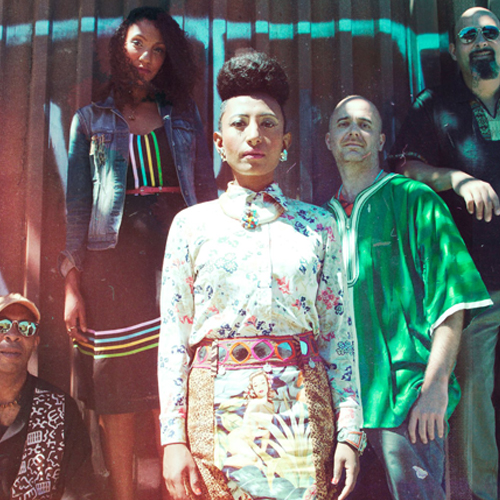 |
Al Sarah and The Nubatones (Sudan)Singer, songwriter, bandleader and a somewhat reluctant ethnomusicologist. Born in Khartoum, Sudan, she relocated to Yemen with her family before abruptly moving to the USA, finally feeling most at home in Brooklyn, NY where she has been residing since 2004. She is a self-proclaimed practitioner of East-African Retro-Pop music. Involved in the critically acclaimed documentary “Beats of the Antonov” she researched ‘Girls’ Songs’ a very popular genre in Sudanese music that talks about women and girls daily lives, normally sang at weddings. “The presence of women in the public sphere is tense in Sudan, but in Girls’ music, women take centre stage, and their friends and community become active participants in any performance through call and response, completely reconfiguring the rules around public space and the presence of women”. |
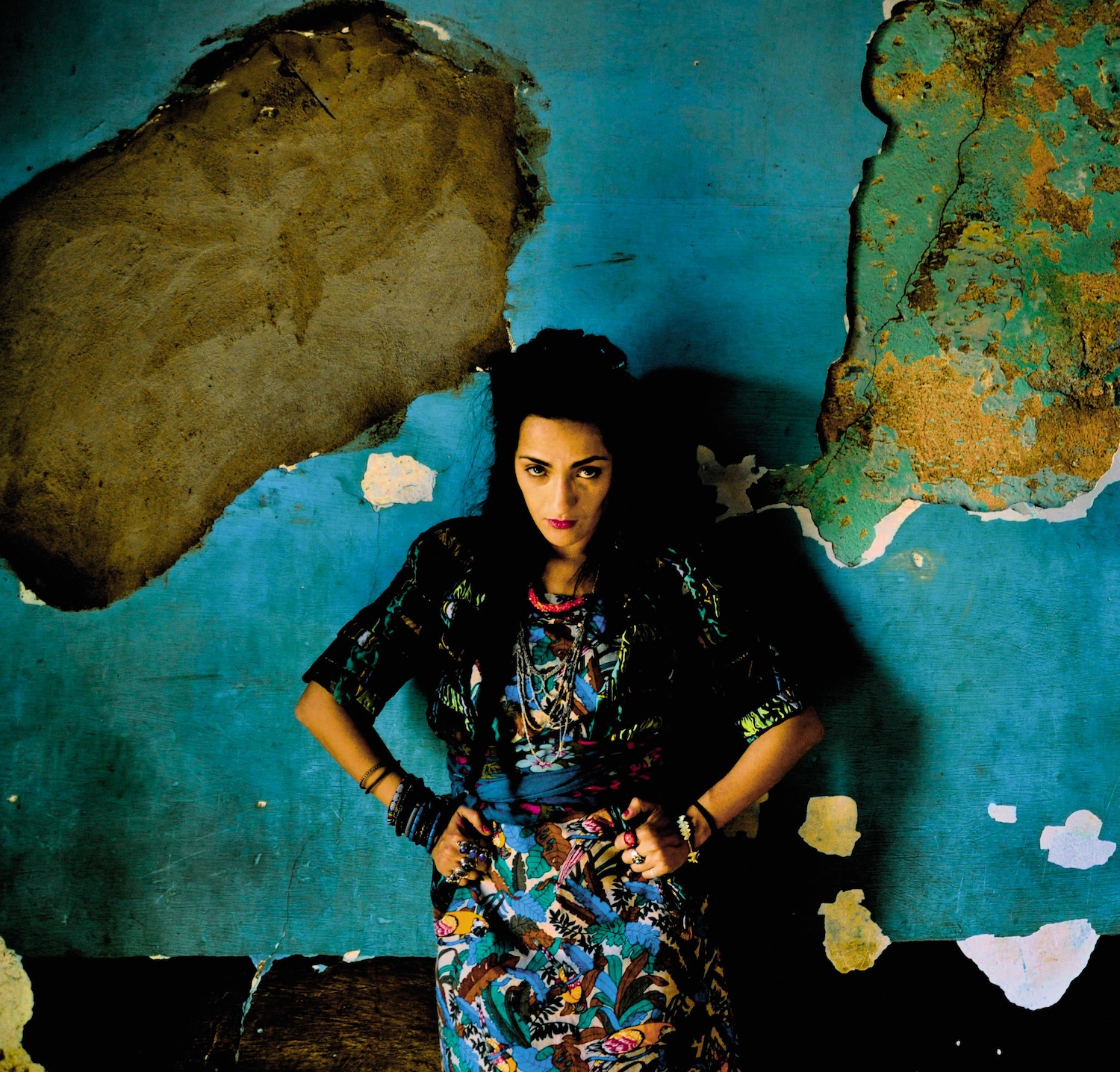 |
Hindi Zahra (Morocco)Franco-Moroccan composer, musician, singer and actress, Hindi Zahra was born in 1979 in Khouribga, Morocco to a Moroccan mother and a French father. Zahra loves to tell stories through her music. Her songs are mostly in English, but some lyrics are in her native Berber language. She is a self-taught multi-instrumentalist, influenced by Jazz, rock, Oriental music from Egypt and South Morocco, African music and Dessert Blues. Her female role models were the female voices of the ’30s and ’40s and onto the ’50s: Cheikha Rimitti, Edith Piaf, Yma Sumac, Maria Callas, Ella Fitzgerald… “The way they used to sing, it was so engaging. You can feel their lives are in the way that they sing”. |
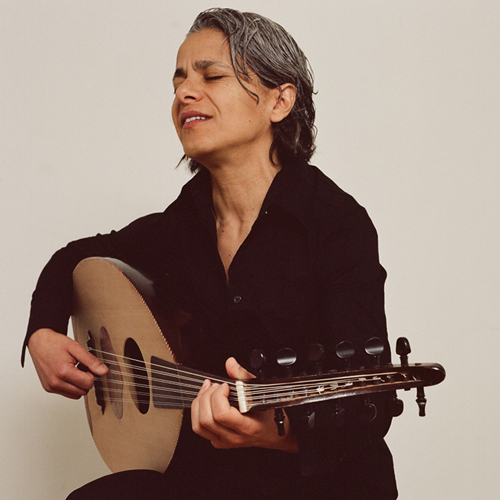 |
Kamylia Jubran (Palestine)Singer, songwriter and musician, Kamylia was born in Akka, in the State of Israel, to Palestinian parents who are from a northern Palestinian village in Al-Jaleel. Elias Jubran, Kamilya’s father, an authentic instrument maker and a music teacher, was her first source of classical Arabic musical education. In Jerusalem and for twenty years, Kamilya was Sabreen’s lead song performer, and player of Oud, Qanoon and other oriental instruments. From 1982 to 2002, Kamilya along with Sabreen represented the voice of resistance, struggle for freedom, and a deep and dynamic artistic-political process that created a new style of a modern Arabic song. Since 2002, Kamylia tour with her first project Mahattatm then Wameedd, besides a solo performance in several Arab and European cities. |
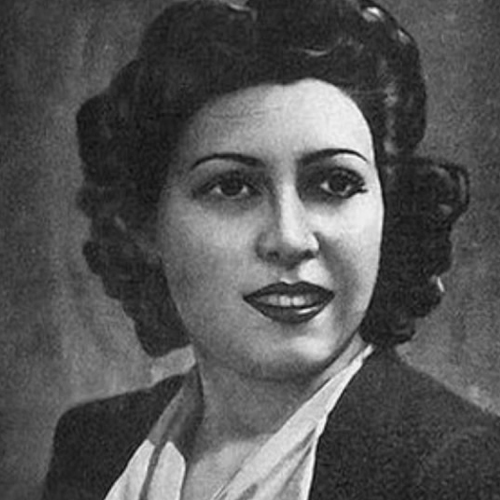 |
Salima Pasha Mourad (Iraq)Well-known Iraqi Jewish singer who was highly respected in the Arab world, and amongst Jews of Iraqi descent in Israel. Even after the bulk of Iraqi Jews left Iraq, Salima continued to live there until her death in 1974. During the 1920s, two brothers began to gain prominence in the field of music in Iraq: the Kuwaiti brothers – Salih, a violin player, and Dawud, an oud player. The brothers began to perform and to compose new songs for Pasha. Salih became the most prominent musician in Iraq, and Pasha became the most famous singer. The respect and adoration for Pasha were unusual at the time, since public performance by women was considered shameful and most female singers were recruited from brothels. |
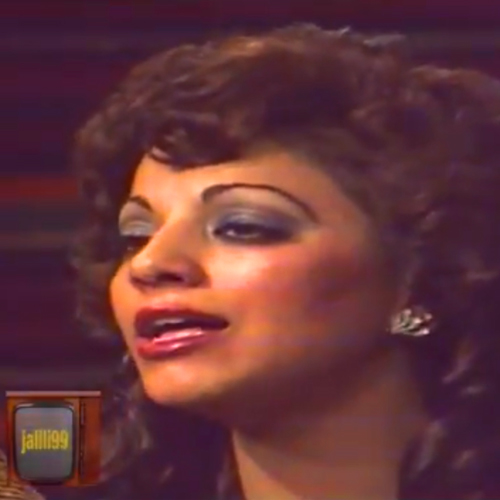 |
Aalya Hussein (Kuwait)Known as the ‘Pearl of Kuwait’, a phenomenal voice, and one of the students in the first batch of students at the Higher Institute of Musical Musical Arts in Kuwait in 1972. Yes, Kuwait was a totally different place then, by any standard, not just Arab. After graduating, she continued performing and teaching at the institute until she gave up the music around 1980 (not sure of exact year), wore the Hijab and got married. Nevertheless, she still is considered one of the greatest Kuwaiti singers of all time. Sadly, we could not find any of her songs on Spotify, like those of many other Kuwaiti singers and female bands. |
‘Music activates a certain mental freedom in a way that nothing else can, and that is so empowering. You can call it escapism if you like, but I see it as connecting to a deeper human feeling than found in the day-to-day world.’ ― Warren Gamaliel Bancroft Winnipeg Harding (Fleet Foxes).
